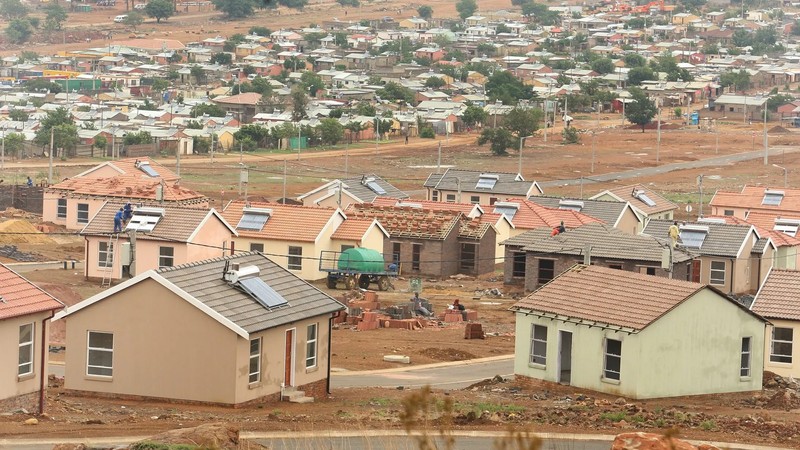Property transactions in Johannesburg depict years of low economic growth, with Lightstone data showing that the city’s property transactions are down by over 30% in some areas.
It has lost significant property value over the last few years, with negative property value growth of 1.3%, the weakest of the metros, and notably below Cape Town’s 6% growth, says Samuel Seeff, chairman of the Seeff Property Group.
He said the average property price has remained static at around R1.3 million.
Despite this, he said the Gauteng metros present unparalleled value for property buyers and investors right now. “Buyers should use the interest rate savings and opportunity to invest at the current historically low prices,” Seeff said.
“You can find unbelievable value, even in the luxury areas where you can find mansions for under R10 million to R15 million. While the market is picking up, it remains sluggish, largely due to poor infrastructure maintenance and management, but this will not always be the case,” he added.
The property group said that despite its current challenges, Johannesburg possesses enormous untapped potential.
It said this is the country’s most populous metro with the highest urbanisation rate, as people continue to flock to Gauteng in search of economic opportunities.
This constant influx creates a robust demand for accommodation, including rentals, presenting lucrative opportunities for investors, with many areas offering above-average rental yields that often surpass those found in Cape Town, it said.
Seeff said the problems of Johannesburg and the Gauteng metros are man-made and they demand man-made solutions. The chairman said it is vital for South Africa’s economic resurgence that these issues are decisively addressed and resolved, especially with significant international gatherings like the G20 on the horizon.
Beyond that, Seeff says residents and ratepayers need to get involved instead of waiting for someone else to solve the problems.
Earlier this year, Neil Gopal, CEO of the South African Property Owners Association(SAPOA), told Independent Media Property that one of the biggest risks currently facing Gauteng is the water crisis and the near collapse of the City of Johannesburg.
He said the continued degradation of infrastructure is a major concern amongst investors and citizens.
The organisation that represents the commercial and industrial real estate sector in South Africa appealed to the government to resolve the devastation of infrastructure at the local government level and intervene where necessary to financially stabilise dysfunctional municipalities.
Seeff said the star power of Joburg is undeniable since it is the financial and economic heart and engine of South Africa, and the wealthiest city on the continent.
He said it is home to the JSE (Johannesburg Stock Exchange), the largest and most sophisticated stock market in Africa, and home to major banks and financial head offices, legal firms, and consultancies.
It is the preferred headquarters for the vast majority of leading corporations, with over 70% of the country’s companies based there, he said.
The company added that the city’s economic output is staggering, contributing almost 16% to South Africa’s total GDP and a remarkable 40% to the economy of Gauteng, the wealthiest province.
It also added that it is also home to the largest concentration of wealth, with nearly 15 000 dollar-millionaires in Johannesburg/Pretoria (according to New World Wealth). Captains of industry, business entrepreneurs and those who drive much of the South African economy are said to be based here.
Seeff said that the property market should be pumping; instead, it is lagging at the bottom of the cycle, offering exceptional value for money, which may not be repeated down the line. Right now, the cost to build is significantly higher than what you can buy for, and buyers and investors should take advantage, he says.
The reality is that Joburg is going nowhere, it will continue expanding, and there are tremendous opportunities to capitalise on, he says further.
“Beyond its economic might, it is a great place to live, and one of the greenest metros with great weather, and a vibrant cosmopolitan lifestyle. It has some of the best schools and tertiary institutions on the continent.”
He said the amenities are top class despite the deteriorating infrastructure, but even on this point, he believes this needs to be addressed as a matter of urgency.
Municipalities should create a better economic stimulating environment for the property sector, in line with fiscal policies adopted worldwide, Douw Boshoff, a Professor in Real Estate at the University of Pretoria (UP), told this publication earlier this year.
He said municipalities should critically evaluate their budget, with more efficient use of funds to invest in infrastructure development and maintenance.
Independent Media Property




